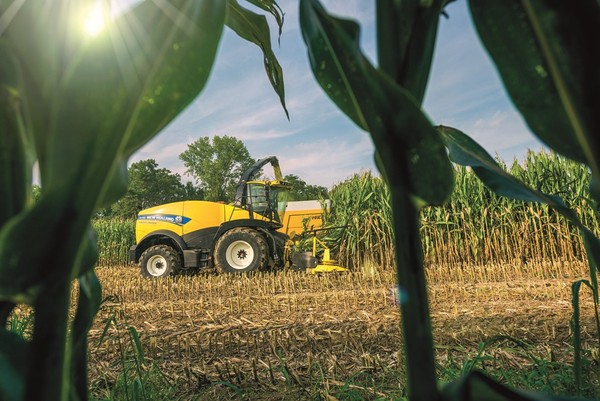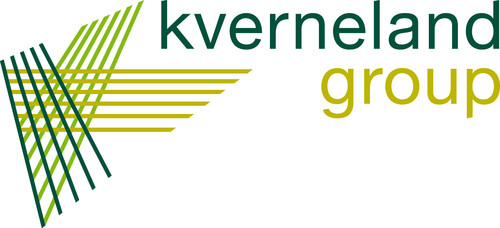
Agricultural machinery for feeding the world
Innovations in the field of agricultural mechanical engineering have played a fundamental role in the economic histories of all countries. Today more than ever it is necessary to develop technologies to satisfy the growing demand for food goods for the populations of the planet. An important conference organized by the Club of Bologna in the setting of the EXPO 2015 Universal Exposition produced the Mechanization Charter to become an integral part of the Charter of Milan, the cultural legacy of EXPO 2015 Milan
This year, marking the occasion of EXPO 2015, the Club of Bologna held its annual Open Meeting – Farm Machinery to Feed the World on September 21st, open to the public in the Theater of the Earth within the Milan EXPO Biodiversity Park.
The aim of this initiative was to underscore and convey to a wider public the fundamental role of agricultural mechanization for the purposes of the EXPO 2015 theme, Feeding the Planet, Energy for Life. In fact it must not be forgotten that according to the UN Food and Agriculture Organization, by 2015 food production must be increased by 60-70% for safeguarding the planet’s residual green reserves and this can come about mainly through a generalized increase of the per hectare yields of land now under crops.
A focus on agricultural mechanical engineering
Thus the contribution of agricultural machinery and rational mechanization is fundamental for guaranteeing sustainability and the quality and safety of the production needed for the great food challenge the world will face in the coming decades.
In an intense day of work, the Club of Bologna experts took up the problems and strategies needed for guaranteeing the production of food resources sufficient for a world population in exponential growth and highlighted the way the strong innovation drive behind developments in agricultural mechanization in recent years has made this factor decisive for bringing agriculture and the sustainability of the environment together.
Of course, for this purpose it will be necessary to avoid the errors of the past – which, for various reasons, placed agriculture among the sectors responsible for the degradation of the environment – and pursue the development of new production technologies for maintaining high production, now possible with the most advanced farming, in sustainable ways for safeguarding the resources of the environment.
No less substantial is the contribution that appropriate forms of mechanization can provide to favor rural development in less advanced areas where the introduction of machinery and equipment in line with local conditions marks the first step toward food self-sufficiency.
In his introductory report, Club of Bologna President Luigi Bodria stressed the way that from the origins of our civilization the development of agricultural tools has been ever increasingly more efficient and the principle factor for economic and social growth. Then, since the closing decades of the last millennium the work shared by agronomic science and mechanization has led to unprecedented growth in the quality and efficiency of agricultural production.
The commitment of machinery has enormously increased the productivity of the labor of man to allow a single farmer, who fed 25 people in the 1960s, to now produce sustenance for 145 people. In the meantime, over the same period, the crop lands required, product brought in being equal, has been reduced by 68%.
There is importance coherence between the general improvement in farm productivity and the progressive reduction in the number of undernourished people, a number which declined from 30% to 11% over the past 45 years though the world’s population has nearly doubled over the same span of time.
Alongside the improvement in functional performance, the efforts of manufacturers to boost efficiency and reduce the energy consumption of engines have been positive and ongoing. Also in this case, improvements over recent decades have been outstanding. The fuel consumption of a modern combine harvester per ton of product harvested has been lowered by two-thirds compared to that of the machines of the 1950s.
The challenge of sustainability
But the fundamental transition in calling on mechanization to again play a fundamental role in the future development of humankind is the arrival of new technologies associated with precision agriculture for transforming machinery from implements purely for work into means capable of reading the environment in which they operate and adapt to local conditions.
Michele Stanca, the president of the National Union of the Academies for Applied Science for the Development of Agriculture, Food Security and Safeguarding the Environment, delivered a lengthy report outlining the great possibilities offered by the development of agricultural genetics with studied targeted on prospects for achieving a doubling of the unified production of major crops. In this first session, reports were also presented by Karl Theodor Renius of the University of Munich and John Schueller of the University of Florida who dealt with the contribution mechanization can provide for the purpose of sustainability of the environment and agricultural production in the industrialized nations.
The two reports pointed out that in the highly industrialized countries agricultural production needs to continue to improve in both quantity and quality in a manner that is economically, environmentally, and socially sustainable. Advances in agricultural mechanization technologies can aid with that task. Recent mechanization developments have contributed and future developments may be great facilitators of more productive and more efficient agricultural crop production.
Examples of advances coming from the adoption of precision farming technologies in crop establishment, pest control, and harvesting equipment are presented and selected technical improvements in equipment guidance, power supply, and ground engagement are also described. Additionally, the potential of the further refinement and adoption of Precision Agriculture (PA) technologies, such as the use of drones and variable rate fertilization and irrigation, to improve sustainability is shown.
These advanced and innovative mechanization techniques will result in more and better agricultural products to meet the world’s needs, minimizing negative impacts on the environment and protecting the health of the peoples.
Food security
In the following session, Josef Kienzle from FAO and Gajendra Singh of the Indian Agricultural Research Institute took up the issue of food availability in areas where there is a persistent undernutrition problem. It was said that 70% of people who suffer from hunger live, in fact, in rural areas where farming and associated activities are the major source of sustenance so rural development generating an availability of appropriate technical means is the essential factor for economic and social development.
The speakers stressed that agricultural intensification during the Green Revolution kick-started the shift to profitable farming and reduced malnourishment but did not have as great an impact in Africa as it had in Asia. The Asian region has made great progress over the past six decades in transforming farm power situation from over 90% from animal sources in the 1960s to over 60% from mechanical sources by 2014 in many countries, while in Africa very low levels of mechanization persist due to low production which generates little cash surplus and so restricts the demand for mechanization (and other) inputs, leading to further low productivity.
The reasons for low demand entail unfavorable physical and commercial environments, inadequate infrastructure and low skill levels. Constraints to mechanization provision from the private sector include issues of machinery imports and distribution, low levels of local manufacture, the need for specialized maintenance and repair services. The development of private sector machinery hire service is seen as a particularly hopeful strategy.
New quality standards
In the closing session, Josse De Baerdemaeker of the Catholic University of Lovain illustrated the role played by mechanization for the purposes of quality and the safety of the product while Giuseppe Gavioli, an industry consultant, put forth an impressive picture of future requirements and the possible evolution of future production systems.
The first report highlighted the point that all stakeholders in the food production chain now consider food safety to be an important issue and producers of food are increasingly subjected to greater scrutiny of their production practices
The Good Agricultural Practices (GAP) standards as the basis for food safety are in general based on the concepts of: application of generic HACCP principles, reducing the inappropriate use of chemicals in general, as well as the level of residues found on food crops; minimize negative impacts of agricultural production on the environment; obtaining a level of occupational health and safety on farms, as well as awareness and responsibility regarding socially related issues, and – where applicable – getting a global level of animal welfare criteria on farms.
Precision Agriculture technologies may become important tools for complying with the regulations and for documentation of the production conditions as a proof of compliance. When the principles of PA are adhered to, the requirements of GAP can be met.
The report by Giuseppe Gavioli showed how several external drivers will have a very strong influence on the farm of the future, such as: the increase of food demand for the growing world population and for growing individual food consumption, the need to increase productivity and efficiency of production on current crop land and to cultivate new land, the availability of new technologies for farm tools, the pervasive presence of information and data. The farming activities will also have to be increasingly sustainable for the environment.
Farmers will interact more and more with global crop and food markets, which will increasingly drive farm to medium to long term strategy, while they will be strengthening links and connections with local farm communities and groups, leveraging on local and regional networks for energy production and sharing, logistic optimization, information and services.
Agricultural mechanization in the charter of Milan
The closing considerations which emerged at the end of the work of the meeting were brought into the Charter of Milan for Mechanization with the unanimous approval of the 48 members of the Club of Bologna present. The document was described as one of specific importance by the Science Committee of the City of Milan EXPO and was thus included as an annex to become an integral part of the Charter of Milan which was delivered to United National Secretary General Ban Ki-moon by the Italian Minister for Agriculture, food and Forestry Policies, Maurizio Martina, on World Food Day held in Milan last October 16th.
The contents state that in light of future work needed to guarantee the achievement of the objectives indicated by EXPO 2015 Milan and in consideration of the state of the art evolution of present technologies, the 48 members of the Club of Bologna present – representing 17 countries and FAO, UNIDO and the UN Economic and Social Commission for Asia and the Pacific (ESCAP) – express the warmest recommendations that:
• ‑the central role of agricultural production and related technologies in order to guarantee everyone the availability of adequate and safe food supply is recognized;
• ‑research in the area of agricultural machinery and mechanization, and more generally, of agro-food technologies, is considered a strategic priority as key factor in meeting the future food needs of the planet;
• ‑appropriate measures aimed at assessing the environmental aspects of the existing machines and to promote the spread of modern machines designed according to new criteria of sustainability and traceability are taken by National and International Authorities;
• ‑the development of an appropriate agricultural mechanization consistent with the local socio-economic conditions is considered the first step to promote agricultural production and rural development in developing countries in order to get poor nations economies up to national prosperity and welfare;
• ‑research, education, extension, personal networking, information supply and international co-operation in agricultural mechanization should get a much higher political priority regarding the huge importance for future mankind.








